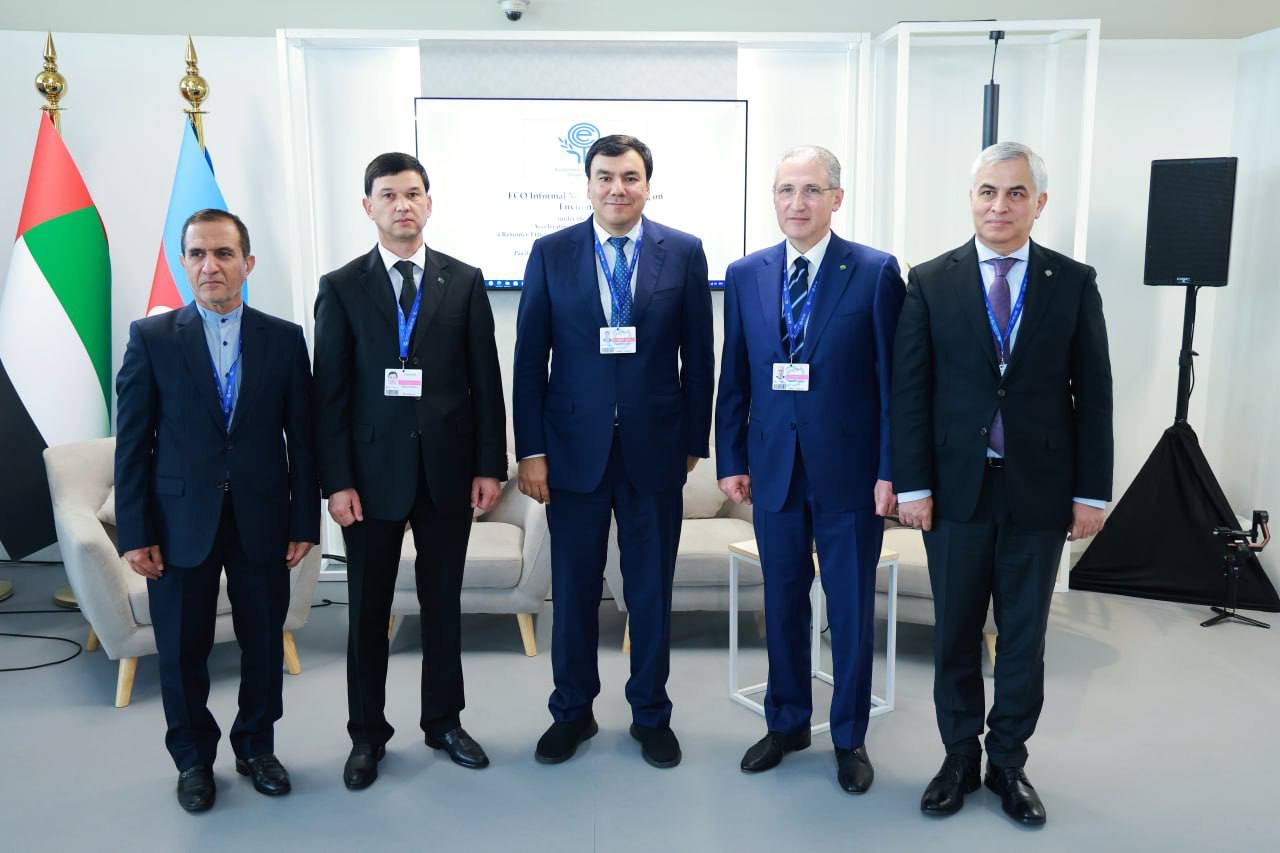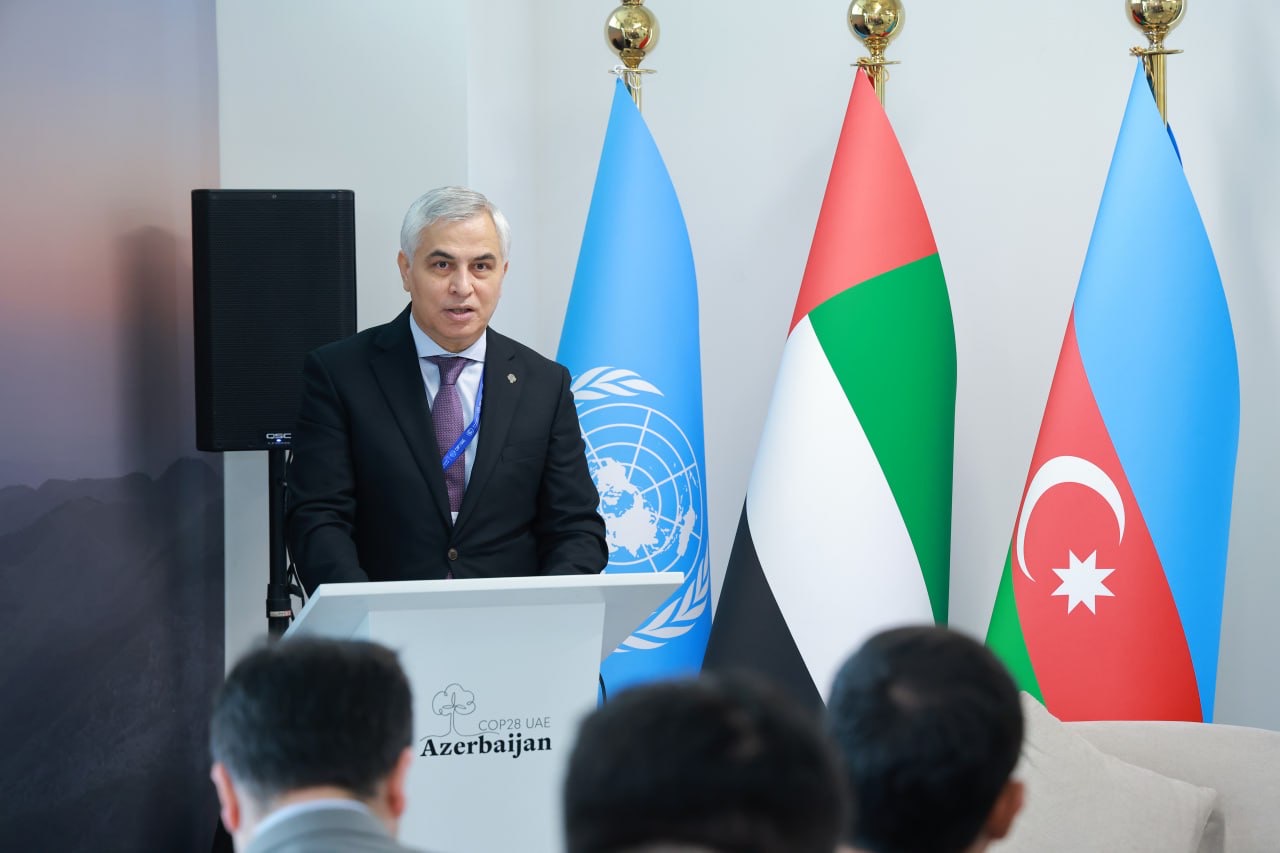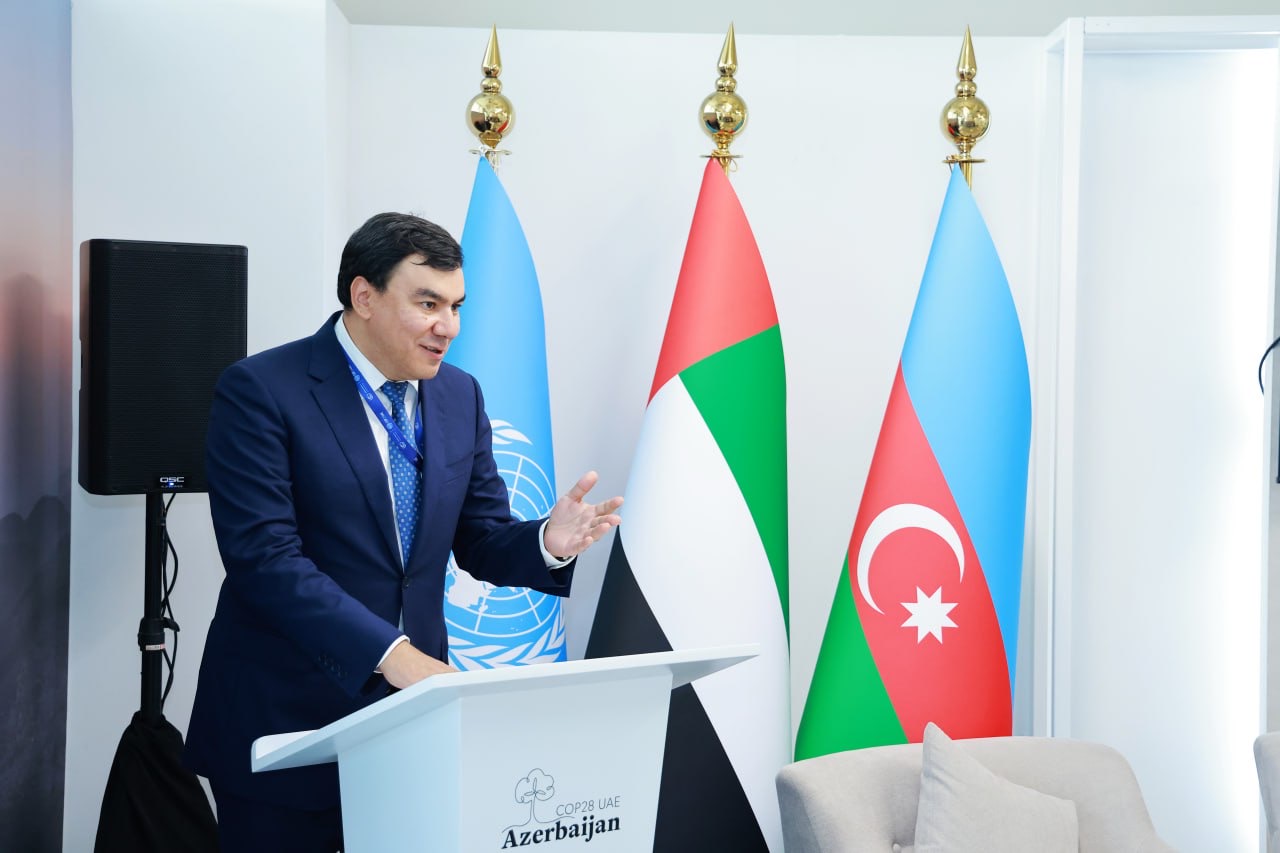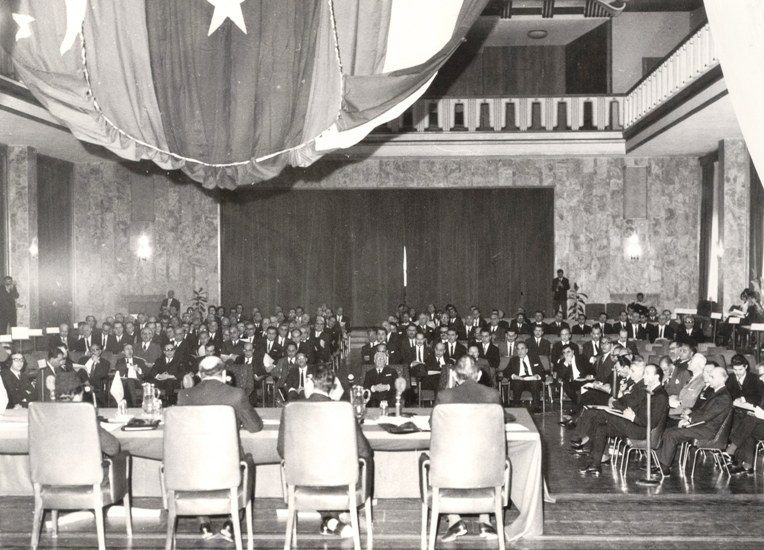Environment ministers from member countries of the Economic Cooperation Organization (ECO) engaged in a high-level dialogue to address urgent environmental issues and accelerate the transition towards resource-efficient, sustainable development, and a circular economy in the ECO region. The informal meeting took place on December 9, in Dubai during the 28th UN Climate Change Conference (COP28), Ministry of Foreign Affairs of Uzbekistan reported.

Notable attendees included Khusrav Noziri, Secretary-General of ECO, Aziz Abdukhakimov, Minister of Ecology, Environmental Protection, and Climate Change of Uzbekistan, Mukhtar Babayev, Minister of Ecology and Natural Resources of Azerbaijan, Nury Jumashov, Deputy Minister of Environmental Protection of Turkmenistan, Masud Rezvanian Rahaghi, Director of International Environment and Energy Affairs of the Ministry of Foreign Affairs of the Islamic Republic of Iran, and other high-ranking officials from ECO member states.
Secretary General Noziri underscored the importance of the meeting, emphasizing the ECO's commitment to addressing environmental challenges. He highlighted the significant gap since the last meeting of ECO member states' ministers in 2014 and stressed the urgency of intensifying efforts to find sustainable solutions to environmental problems and climate change.

Moreover, Noziri announced the forthcoming 1st meeting of the High-Level Dialogue Platform on Cooperation in the Field of Ecology, initiated by Uzbekistan. This platform, proposed by President Shavkat Mirziyoyev at the 15th ECO summit in 2021, aims to foster cooperation in the field of ecology within the ECO framework.
Minister Abdukhakimov echoed the urgency of addressing climate change and environmental degradation, emphasizing the shared responsibility among ECO member states. He announced Uzbekistan's readiness to host the 1st meeting of the High-Level Dialogue Platform in the first half of the following year.
In outlining the plan of measures for the upcoming international event, Abdukhakimov proposed organizing a high-level ministerial dialogue on environmental cooperation annually in member countries. Preceding each meeting, expert workshops on biodiversity, land degradation, conservation, and climate in the ECO region would be conducted. The outcomes of these workshops would contribute to the development of actionable plans, monitored by a dedicated task force comprising representatives from each country.

During the informal meeting, ECO member states deliberated on the ECO Framework for Environmental Cooperation (2023-2030) and its applications. Additionally, a presentation on the Regional Initiative focusing on resource efficiency, sustainable development, and circular economy in the ECO region took place.
The meeting concluded with the adoption of a Joint Statement by the Ministers of Ecology, reaffirming their commitment to addressing environmental challenges collectively and implementing concrete measures outlined in the ECO Framework for Environmental Cooperation (2023-2030). The event marked a significant step towards fostering collaboration and finding sustainable solutions to environmental issues within the ECO community.

About the Economic Cooperation Organization
Founded in 1964 as the Regional Cooperation for Development (RCD) by the Islamic Republic of Iran, the Islamic Republic of Pakistan, and the Republic of Türkiye, the Forum underwent a transformation in 1985 and was renamed the Economic Cooperation Organization (ECO). Spanning over 8 mn square kilometers and housing more than 460 mn people, the ECO Region serves as a vital geographic link connecting various parts of the world. Comprising countries from the Caucasus, South Asia, West Asia, and Central Asia, ECO stands as one of the oldest intergovernmental organizations.
With its fundamental goal of promoting sustainable economic development in the region for the joint welfare of its Member States, ECO expanded in the early 1990s to include the Islamic Republic of Afghanistan, the Republic of Azerbaijan, and five Central Asian nations: Kazakhstan, Kyrgyzstan, Tajikistan, Turkmenistan, and Uzbekistan. Over the years, the Organization has become a proactive forum for economic diplomacy, with Member States collaboratively working towards greater connectivity and integration in the region, driven by shared cultural and historical affinities.
Follow Daryo's official Instagram and Twitter pages to keep current on world news.
Comments (0)